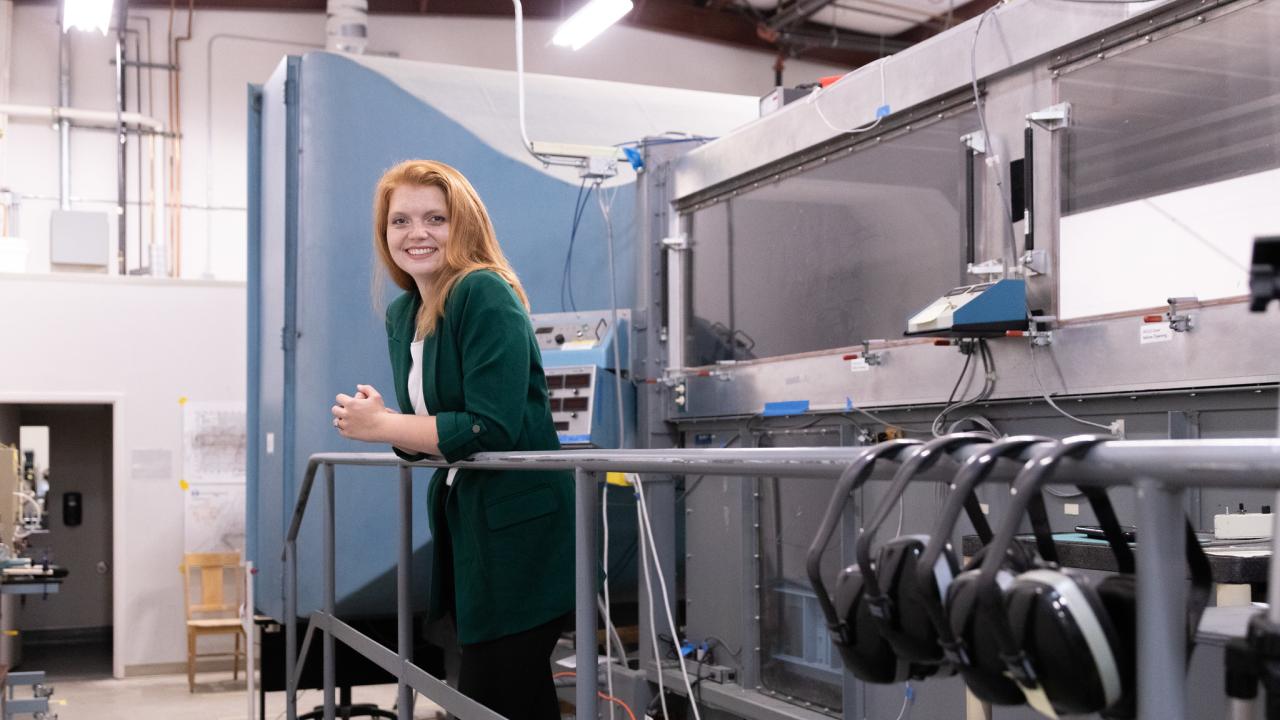
Engineer Studying Bird Flight Awarded Packard Fellowship
Christina Harvey, a University of California, Davis, researcher studying how bird flight can be used to improve aircraft design, has been awarded a 2023 Packard Fellowship in Science and Engineering from the David and Lucile Packard Foundation.
Harvey, an assistant professor in the Department of Mechanical and Aerospace Engineering, is among 20 innovative early-career scientists and engineers who will each receive $875,000 over five years to pursue their research.
This year's class of fellows is exploring new frontiers in their fields of study, such as how animals make decisions in the face of environmental changes and how brain-body interactions work. In Harvey's Biologically Informed Research and Design, or BIRD, lab, she uses experimental and computational techniques to elevate our understanding of how birds fly to inspire aircraft design.
"I am honored to have been selected for this award," said Harvey. "The Packard fellowship will make it possible for our group to establish a strong foothold in avian flight dynamics research in collaboration with the California Raptor Center and low-speed aerodynamics, thanks to the UC Davis wind tunnels. Personally, it also encourages me to continue investigating research questions that integrate biology and engineering approaches to push the boundaries of our current knowledge."
"We are ecstatic that Professor Christina Harvey is a Packard Foundation Fellowship recipient," said Ben Shaw, Warren and Leta Giedt Endowed Professor and chair of the Department of Mechanical and Aerospace Engineering. "This fellowship will enable Christina to advance her research on fundamental aspects of bird flight and to apply the knowledge gained to the design of new aircraft as well as other areas of engineering."
Flight path for the future
Harvey looks to birds to inspire next-generation aircraft designs, particularly for uncrewed aerial vehicles, or UAVs. Most UAVs are either highly maneuverable or can fly long distances for long periods of time, but never both. Naturally, this limits the aircraft's functionality and adaptability.
A study she did as a graduate student at the University of Michigan, which was published in Nature, found that birds can shift between steady (more controlled) and unsteady (more maneuverable) aerodynamics to both soar and swoop as they fly. She thinks aerospace engineers can use this as inspiration to develop UAVs that are both maneuverable and controllable and therefore adaptable to different situations.
"Our goal is not to mimic birds, but rather to figure out which attributes of their flight are useful if we are going to try to replicate things that they do," she said earlier this year. "Birds don't do everything better, but there are a lot of things that they can do that outperform aircraft, so things like maneuverability and adaptability are where my research falls."
The Packard Fellowships for Science and Engineering program was established in 1988 to encourage "blue-sky thinking" among early career scientists and engineers.
